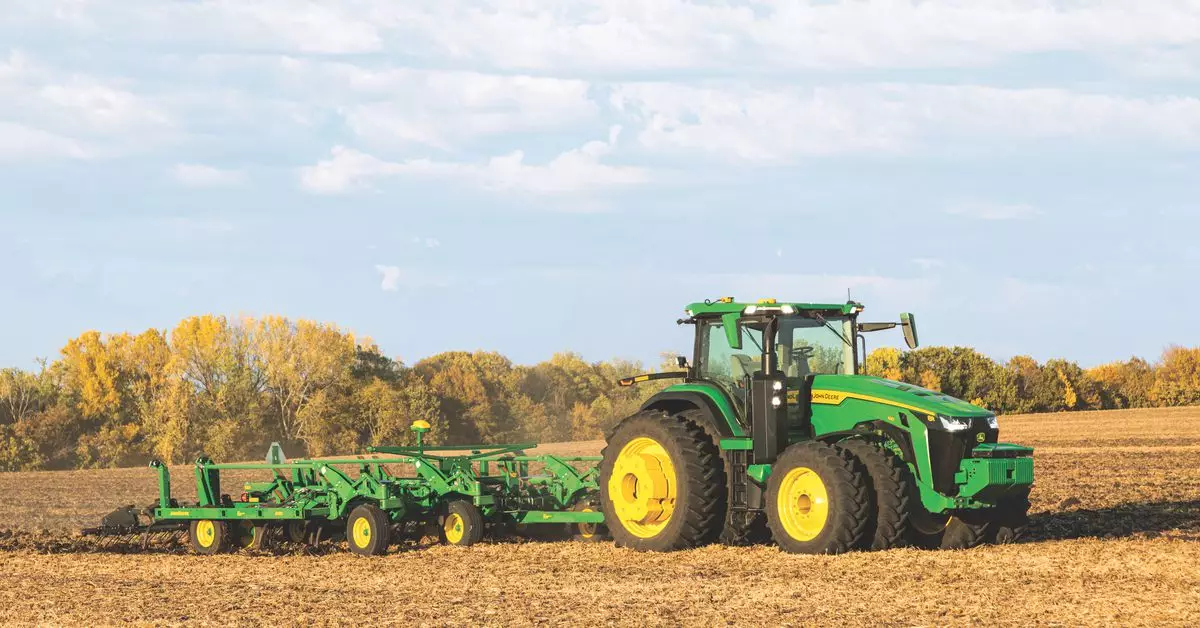The recent solar storms that have been mesmerizing observers with stunning displays of the Northern Lights across the United States have also been causing significant disruptions to GPS satellites. These disruptions have had a direct impact on the operations of Midwest farmers, particularly as they were gearing up for a crucial planting deadline for corn crops. According to reports, the solar storms temporarily knocked some GPS systems offline, resulting in the malfunctioning of Real-Time Kinematic (RTK) systems. This, in turn, affected the centimeter-level positional accuracy of tractors from leading brands like John Deere, which rely on RTK technology for precise crop-planting and fertilizing.
The compromised GPS systems led to drastic shifts in the field and even changes in direction for farmers who continued planting during the outages. A warning issued by the Kansas and Nebraska John Deere dealer, Landmark Implement, highlighted the potential consequences of planting with inaccurate GPS data. It was noted that the planted rows may not align with the expected positions calculated by AutoPath, a tractor guidance system, making it difficult or even impossible to manage the crops effectively later on. Organic farmer Tom Schwarz shared how the solar storms had halted their operations, and the looming weather forecast further postponed planting activities. The reliance on RTK systems to plant crops accurately up to the edge of lanes where tractors drive presented a significant challenge, as inaccurate GPS data could result in crop damage due to human drivers’ inability to steer tractors effectively between the rows.
Dependence on High-Tech Farming Equipment
Modern farming practices heavily rely on high-tech equipment, including automated tractors, to efficiently manage agricultural operations. The failure of these sophisticated systems, as seen during the recent disruptions caused by solar storms, can significantly impact farmers’ ability to meet critical planting deadlines and ensure the success of their crops. The integration of technology into every step of the farming process underscores the importance of maintaining and repairing these systems promptly to avoid costly disruptions and setbacks. This dependence on technology has also fueled the push for right-to-repair laws, which empower farmers to repair their equipment independently and reduce their reliance on manufacturers for technical support.
Solar storms, such as the recent geomagnetic disturbances caused by coronal mass ejections from the sun, can have profound effects on Earth’s technological infrastructure, including GPS satellites. The severity of these storms is classified by the NOAA on a scale from G1 to G5, with the recent storm reaching G5 intensity. Past incidents, like the power outage in a Canadian province in 1989 and the disruption of Starlink satellites in 2022, highlight the potential risks associated with powerful solar storms. The ongoing challenges faced by GPS satellites and communication systems during severe solar storms emphasize the need for robust contingency plans and resilient infrastructure to mitigate the impact of such natural phenomena on critical services and industries.
The recent disruptions caused by solar storms serve as a stark reminder of the vulnerabilities inherent in our reliance on advanced technology for essential functions like agriculture. As farmers continue to navigate the challenges posed by external factors beyond their control, proactive measures to address the impact of solar storms on GPS satellites and farming operations become increasingly vital. By understanding the dynamics of solar activity and investing in resilient technologies, we can better prepare for and mitigate the disruptions caused by future geomagnetic storms.


Leave a Reply